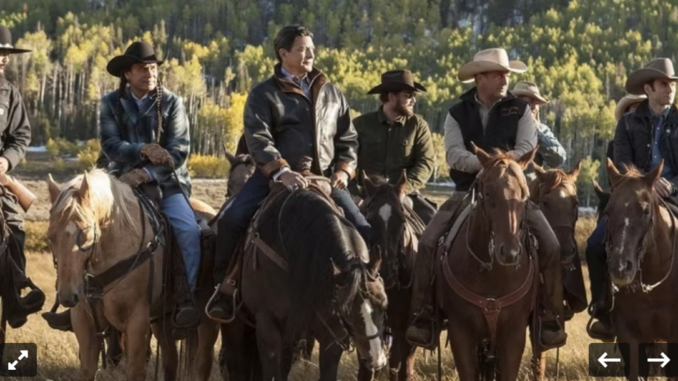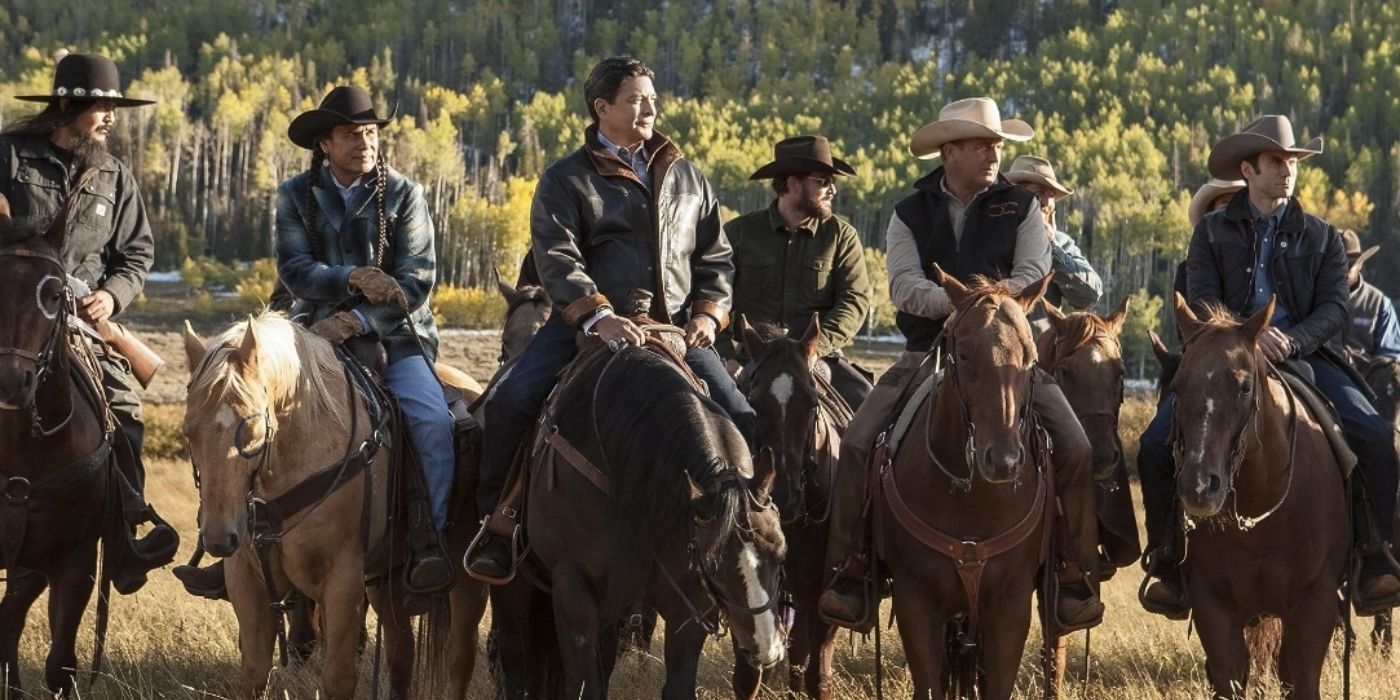
Some of Yellowstone’s Biggest Struggles Are Real
Land Loss and Land Encroachment Are Real Issues for Ranchers in America
Yellowstone is not a show without drama, both inside and outside the Dutton family. In the same interview, Jarvis mentioned that the Dutton family’s struggles are so accurate to real life that she sometimes found it hard to watch because she couldn’t escape the problems of her own ranching life while watching the show. At the heart of that, and a theme that has been around since long before Yellowstone shed light on the issue, is land loss and encroachment. Populations are growing and moving, and it’s harder for ranching families to keep their large tracts of land intact.
The COVID-19 pandemic has only exacerbated that struggle. As countless articles and news reports have explored throughout the pandemic, many people, especially young people, have been leaving city life for quieter mountain towns and rural escapes. Sometimes that works to a town’s advantage, as it sometimes injects more money and more businesses into struggling locations. But sometimes it leads to conflict between ranchers and land developers as the former fight to keep their land from the latter. The balance between resource development and land is a difficult one to strike, and ranches and farms across the country are finding themselves on the losing end of that battle. Interestingly, there is an argument that Yellowstone’s success is accelerating that land loss. As the podcast Outside/In explores, there’s anecdotal evidence (and perhaps some data-based evidence) that the show’s depiction of the American West is luring wealthy entrepreneurs and others to move to Montana in hopes of living out their rugged rancher fantasies. Since 2018, when Yellowstone first aired, home and real estate prices across the state have doubled. While that may be coincidental, it’s not the first time a wildly successful TV show or movie has created a tourism boom or population shift—just look at what happened to New Zealand after The Lord of the Rings hit theaters, or Dubrovnik, Croatia after Game of Thrones.
Yellowstone Made Up a Lot for TV
However, as accurate as Yellowstone is, it is still a fictionalized TV show about ranching life, and that means certain things are embellished if not outright fabricated. First is the Dutton family’s wealth. While some ranching families can certainly be wealthy, as mentioned above, that’s the rare exception, not the rule. The Duttons have a helicopter – that’s not the case for most families, let alone ranching families. Likewise, the Duttons’ high-end equipment isn’t necessarily the kind of equipment – expensive trucks and trailers, etc. – that most working ranchers use. Real ranching is tougher, less profitable, and harder to make a living on than the Yellowstone shows.

While some ranching families can certainly be wealthy, that’s the rare exception, not the rule.
Yellowstone’s violence is also a bit over-the-top and unrealistic at times. The level of physical violence in the show between belligerent ranchers and their families may have been somewhat accurate during the more lawless times of the 1960s and 1970s in the American West, but that’s no longer the case today. Yellowstone’s characters seem to take a “shoot first, ask questions later” approach to the constant threats they face, but the reality is that the struggles ranchers face are unlikely to be solved with a single bullet; government support, balanced land use, and addressing climate change are more effective ways to solve the problem.
By far the most problematic element of Yellowstone is its depiction of Native Americans. This has long been a criticism of Taylor Sheridan’s projects, whether it’s the portrayal of Mexicans in Sicario or Native Americans in Yellowstone. Sheridan’s writing is done through a very white lens that tends to otherize and diminish non-white characters, if his writing includes them in any significant way. In Sheridan’s Yellowstone, might makes right, and whiteness makes power above all else.
The show does a great job of exploring issues like land ownership and tribal sovereignty, but other natives have pointed out Yellowstone’s problems with stereotyping and inauthentic tribal politics. Yellowstone is surprisingly honest—but always remember that it’s told
